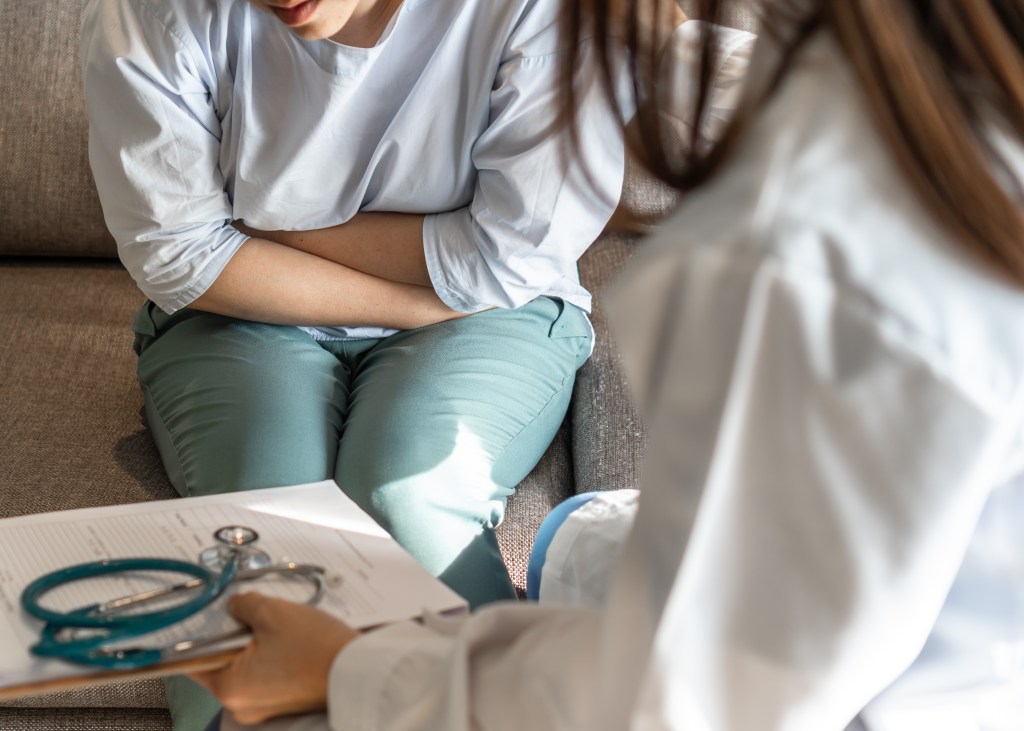FDA Approves Self-Collecting Vaginal Samples for HPV

[ad_1]
Pelvic exams are no one’s idea of fun. No matter how many you’ve done, no matter how prepared you are, that moment when the ice cold speculum wrenches open your vagina never gets more comfortable. As much as we’d like to skip them, pelvic exams are when your doctor does important things like examine your reproductive organs, gather samples for HPV tests, and do Pap smears to test for cervical cancer. But what if you could skip the speculum, the wrenching, the whole bit, and just collect some those samples yourself?
The FDA just approved that option, making it possible for patients to collect their own vaginal samples for HPV testing in a health care setting (think: a doctor’s office, urgent care facility, pharmacy, or mobile clinic). On May 15, two healthcare companies announced the FDA’s approval to use self-collected samples for their separate HPV tests, a major step forward for patient accessibility and comfort.
“Many patients are uncomfortable with the intimate nature of a pelvic exam,” Dr. Jeff Andrews, gynecologist and vice president of Global Medical Affairs for Diagnostic Solutions at BD, one of the companies announcing the approval, said in a statement. He also noted that “many people live in areas without a local doctor or clinician trained to obtain a sample with a speculum,” so offering a self-collection option in a healthcare setting “can help women overcome some of these barriers.”
HPV is the most common sexually-transmitted infection (aka STI) in the US, with about 80 percent of women getting at least one type of HPV in their lifetime, per the Office on Women’s Health. While some types of HPV present no symptoms and go away on their own, other strains can cause serious conditions, including genital warts and cervical cancer. HPV and cervical cancer, in particular, are very closely linked; according to the National Cancer Institute, “virtually all cervical cancer is caused by HPV.”
The good news: per the NCI, routine screening via an HPV test or Pap test (in which the provider takes a sample of cervical cells for testing) “can prevent most cervical cancer by allowing health care providers to find and remove precancerous cells before they develop into cervical cancer.” (The HPV vaccine also protects against infection from nine strains of HPV, including seven that cause most HPV-related cancers.)
Anything that makes HPV testing more accessible, then, is a very good thing, especially because cervical cancer is “most common in rarely or never screened women,” the NCI notes, and may show no symptoms in early stages. Offering a more comfortable, more easily accessible test for HPV, which causes the vast majority of cervical cancers, is a big step in the right direction.
“Self-collection can expand access to screening and reduces barriers,” Dr. Karen E. Knudsen, CEO of the American Cancer Society, said in a statement following the self-collection approvals. That, in turn, “will give more people the opportunity to detect, treat, and ultimately survive cancer,” she said.
And the goal is to make self-collection even more accessible in time. This summer, BD and the NCI are collaborating in a trial on self-collection for HPV testing “to evaluate accuracy of self-collection for HPV testing both in health care and other settings, including at home.” That means that, eventually, you might be able to gather samples for an HPV test without even going to your doctor’s office.
For now, both BD and Roche (the second company that got FDA approval) are approved for HPV testing on self-collected vaginal samples taken in healthcare settings. BD has been approved to test self-collected samples for HPV without a Pap test, while Roche can test self-collected samples with the company’s cobas HPV test, per the company’s statement.
So if you’re one of those people that dreads getting your regular pelvic exam, hang tight — self-collected HPV tests may be coming to a doctors’ office, pharmacy, or urgent care near you, very soon. (PS: If you haven’t had a screening for a while, now’s a good time to schedule! The US Preventive Services Task Force recommends screening for cervical cancer every three years via Pap test for women aged 21 to 29 years. For women ages 30 to 65, the task force recommends screening every three years with a Pap test, every five years with high-risk HPV testing, or every five years with both tests.)
Before you go, read about these stars who’ve shared their rare and chronic conditions to take on stigma:
[ad_2]






